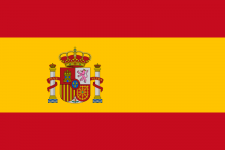
The Spanish government approved a new Immigration Regulation to improve the integration of migrants in 3 key areas: work, education, and family. Minister of Inclusion Elma Saiz said that the new regulation ”represents a balance between extending and protecting the rights of migrants and the legal rigor and attention to Spain's needs”.
The new regulation aims to adapt the Spanish normative framework to the country's current migration situation, meet the needs of both the domestic labour market and the migrants themselves, and address the issue of the country's ageing population. The regulation complies with European Union law through the transposition of pending directives and the application of community regulations, and results from an intense consultation process with NGOs, migrant employer associations, unions, autonomous communities, and local entities.
Key features include:
Visas
- The new text creates a specific title for visas, clarifying the scheme, requirements, and procedures. All initial visa-authorisations will be for 1 year, and renewals for 4. The aim of this is to tackle situations of irregularity, something that has also been addressed by clarifying and simplifying the procedures for changing from one residence status to another. For example, it will no longer be necessary to leave the country in order to be eligile for long-term residence after previously holding temporary residence status.
- The validity of the "job seeking" visa, which allows for job searching in certain occupations and territorial areas, has been extended from 3 months to one year.
Residence (arraigo system)
- "We are the only country in the European Union that has a specific figure to 'regularise' people day by day through residency” explained Saiz in introduction to the 5 new modalities of arraigo, namely channels to access residency: 1) social, 2) socio-labour, 3) family, 4) socio-educational, and 5) the so-called "second chance" arraigo, which is aimed at those who have had a residence permit in the last two years but have not renewed it.
- The time of residence required is reduced from 3 to 2 years. Additionally, the requirements have been made more flexible and those with permits will be able to both work as an employee and be self-employed from the first moment.
- All new residence permits will be valid for 1 year and renewable for 4 years, except for the one for families which will last for 5 years.
- The government estimates that approximately 300 000 people could be regularised each year over the next 3 years, thanks to this new system.
Overall, the minister said, “the regulation opens doors that were previously closed through three keys: education, employment, and family".
Work
- Most of the permits presented in the new reform enable individuals to work immediately, without having to expressly request an initial work authorisation as an employee. This includes people who migrate to study, who will be able to work up to 30 hours a week. In this way, the inclusion of the migrant and their integration into society is promoted.
- Regarding seasonal activities, a specific residence and work permit has been created, facilitating hiring both individually and collectively. Additionally, the protection of workers' rights is improved, as they must have specific and written information (in a language they understand) about their working conditions, stay, and other expenses. Their living conditions and safety as workers are also improved from the moment they leave their country until they are registered with social security services in Italy. This is complemented by improvements to the possibility of changing employers in case of abuse, or other causes that have prevented the development of the employment relationship (employer's death, crop plague, etc.).
- The text also promotes the better informing of employers throughout the hiring process, which is made simpler and more flexible. Extending residence permits (with the 1+4 formula) provides greater stability and more guarantees to companies too.
Education
- An important new measure relates to foreign students, who will be able to secure a study stay permit for the duration of their study, and a fast track option will be facilitated for them to link with a work permit once their study / training is finished.
- During their studies, they will be authorised to work in employment for a maximum of 30 hours per week, regardless of the training they are pursuing.
- The requirements and obligations of educational centres have been reinforced, giving students greater protection of their rights.
Family
- Family reunification has also been improved under this reform. A residence permit has been created for relatives of Spanish citizens, in which case the age of 'children' is extended to 26 years (previously 21), and new cases are included.
- Most of those who will benefit from this measure are those who have obtained Spanish nationality in recent years and can thus reunify with their family.
- The concept of reunited family members is also extended to the children and parents of victims of trafficking, sexual violence, and gender-based violence.
Details
- Publication dates
- Geographic area
- Spain
- Source
- Posted by
